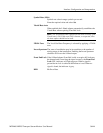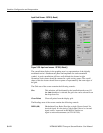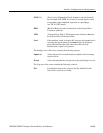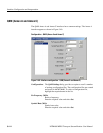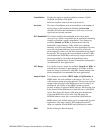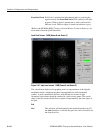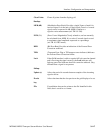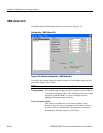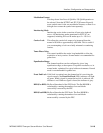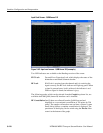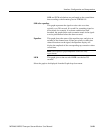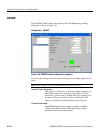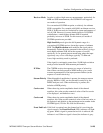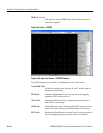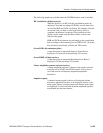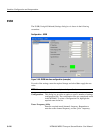
Interface Configuration and Interpretation
MTM400 MPEG Transport Stream Monitor User Manual 3-119
Modulation Format:
This drop-down list allows 64 QAM or 256 QAM operation to
be selected. Note that SCTE07 and ITU-Tj83 annex B specify
exact symbol rates for the two modulation formats, so there is no
dialogue box to enter the symbol rate separately.
Interleaving Mode:
Interleaving assists in the correction of burst noise induced
errors. All interleaving modes mentioned in SCTE 07 are
supported, including all Level II modes up to I = 128 J = 6.
Carrier Lock: This allows the carrier lock range to be increased from the
normal ±150 kHz to approximately ±500 kHz. This is useful if
you are attempting to lock on to badly mistuned or wandering
carriers.
Tuner Phase Noise:
This control modifies the carrier loop bandwidth to allow the
acquisition of nosiy carriers. Normal mode is recommended for
general use.
Equalization Range:
The channel equalizer can be configured to give a long
equalization range, at the expense of equalizer resolution, or, in
normal mode, optimized for typical cable environments. Normal
mode is recommended for general use.
Front End Lock If full lock is acquired onto the channel and it is receiving the
signal correctly, the Front End Lock (FEL) indicator will light
up green. When a signal is present but no lock is achieved, the
indicator is red. When no signal is found, the indicator is gray.
BER (Pre-BER) Bit Error Rate ahead of the FEC block. The Pre RS BER is
calculated by counting the number of errored blocks
successfully corrected by the FEC.
BER (Post-BER)
Bit Error Rate after the FEC block. The Post RS BER is
calculated by counting the number of errored blocks
unsuccessfully corrected by the FEC.



